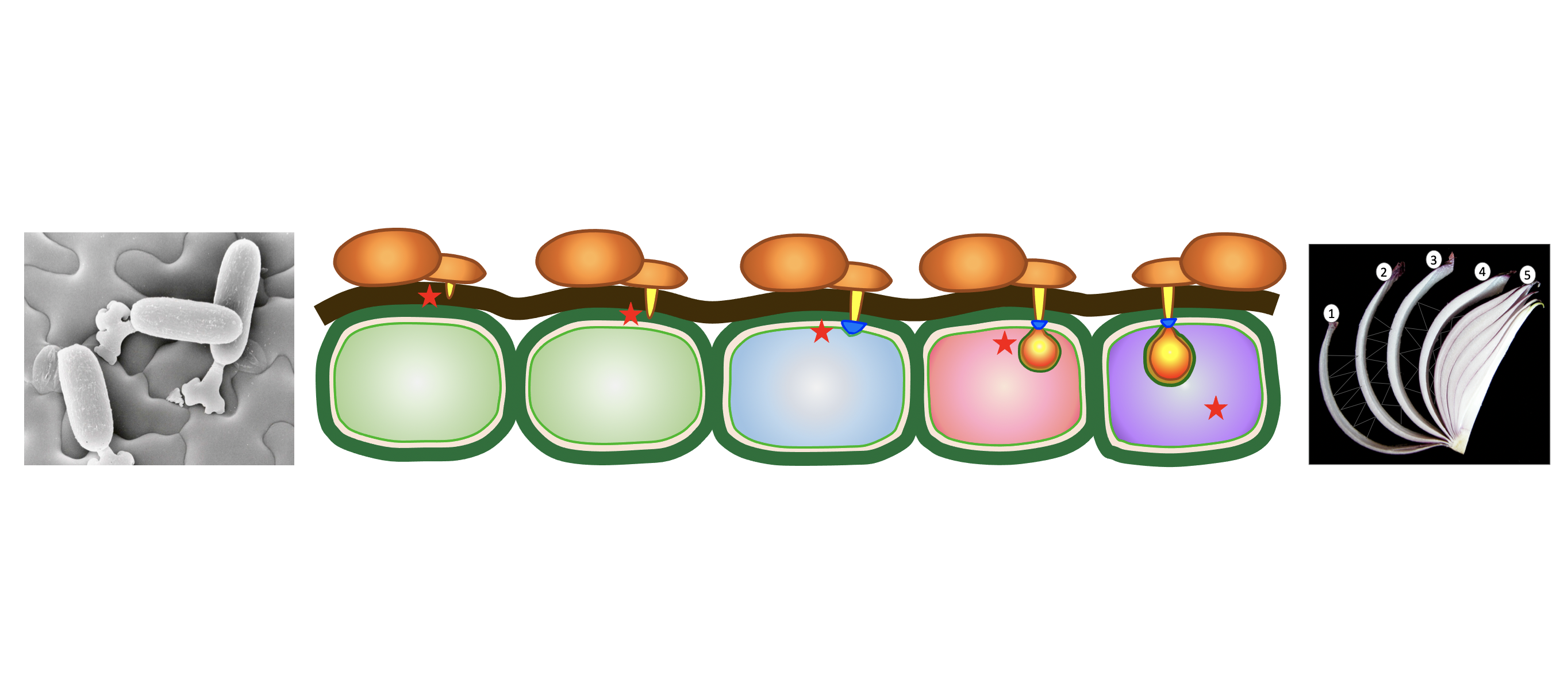NSF-Supported Collaborative Research on Nonhost Resistance
Project Title: Genome-wide Quest for Non-host Resistance Mechanisms in Plants
PI: Shunyuan Xiao (U. of Maryland); Co-PIs: Bing Yang (U. of Missouri), Yiping Qi (U. of Maryland); Hemayet Ullah (Howard University)
This research project supported by NSF's Plant Genome Research Program (IOS-2224203; IOS-2224204; IOS-2224205) aims to understand the genetic / molecular basis of non-host resistance in plants.
Nonhost resistance (NHR) refers to immunity of most tested genotypes of a plant species to most tested variants of a pathogen species that can cause diseases on other plant species. Unlike host resistance, which is mounted against adapted pathogens and has been well characterized at the molecular level, the genetic basis of NHR remains largely unknown. The long-term goal of this project is to elucidate the molecular mechanisms of NHR for improving crop resistance against aggressive pathogens. It is hypothesized that NHR in most cases is multi-layered and genetically intractable by conventional means but dissectible by stepwise forward genetics and/or CRISPR-enabled reverse genetics approaches. There are four specific objectives for this collaborative project. Aim 1 is to identify novel genes contributing to NHR in Arabidopsis (as a model dicot) against non-adapted powdery mildew and rust fungi using stepwise forward genetic screens. Aim 2 is to identify genes essential for NHR against powdery mildew and rust fungi, and other pathogens in rice (as a model monocot) using multiplexed CRISPR mutagenesis of up to 50 various rice immunity genes followed by geared infection screens. Aim 3 is to elucidate novel immune mechanisms controlling NHR via various molecular methods including comparative transcriptomics, proteomics and metabolomics. Aim 4 is to facilitate community research and promote education of next-generation plant scientists with a focus on training underrepresented minority students. New knowledge from the proposed research may help establish mechanistic frameworks for NHR in connection with the well-established PAMP (pathogen-associated molecular pattern)-triggered immunity and/or effector-triggered immunity.
